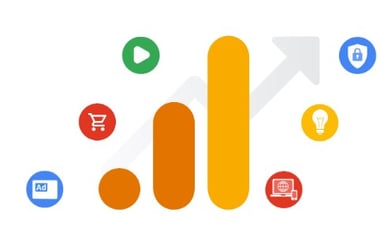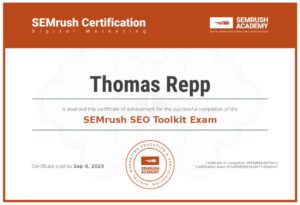 In the world of search, mobile, social and AI, data analytics plays a critical role in understanding industrial buyers’ behavior, optimizing marketing strategies, and driving business growth. For years, Google Analytics has been the go-to tool for marketers and website owners to track website performance and gain valuable insights. However, in recent times, HubSpot's data analytics capabilities have been gaining momentum, raising the question: Can HubSpot's data analytics replace Google Analytics 4 for the typical B2B industrial marketer?
In the world of search, mobile, social and AI, data analytics plays a critical role in understanding industrial buyers’ behavior, optimizing marketing strategies, and driving business growth. For years, Google Analytics has been the go-to tool for marketers and website owners to track website performance and gain valuable insights. However, in recent times, HubSpot's data analytics capabilities have been gaining momentum, raising the question: Can HubSpot's data analytics replace Google Analytics 4 for the typical B2B industrial marketer?
Google Analytics 4 (GA4) is the latest version of Google's popular analytics platform. It offers enhanced tracking capabilities and a more comprehensive view of user behavior across different devices and platforms … at a price … mostly time and learning curves. I have followed the roll out of GA4 for months and integrated GA4 into my own HubSpot website at www.thereppgroup.com. It is horrendously complicated and a huge time-suck for the typical B2B marketing staffer. If you use an agency, your are probadly paying for data that you do not need.
But GA4 leverages machine learning and artificial intelligence to provide valuable insights into user engagement, conversion paths, and customer journeys. It also integrates seamlessly with other Google products, such as Google Ads and Google Tag Manager, making it a powerful tool for marketers.
GA4 provides an amazing array of information for website owners, but for the mid-size B2B ... not so valuable … assuming your B2B has already deployed HubSpot or similar marketing automation.
HubSpot is a well-known customer relationship management (CRM) platform that offers a wide range of marketing, sales, and customer service tools. While HubSpot's primary focus is on inbound marketing, it has recently expanded its data analytics capabilities to provide users with valuable insights into their marketing efforts. HubSpot's data analytics dashboard offers metrics and reports on website traffic, conversion rates, email campaigns, social media engagement, and more, all data easily deployed when you install HubSpot …without the aggravation of setting up Google Analytics 4.
One of the key advantages of using HubSpot's data analytics is its integration with other HubSpot tools. Marketers can seamlessly track and analyze data from various sources, including website activity, email marketing campaigns, and customer interactions. This unified view of data provides marketers with a holistic understanding of their marketing efforts and enables them to make data-driven decisions more effectively. A holistic approach is ideal for the smaller B2B industrial market. HubSpot easily provides all the analysis and reporting you will ever need in the B2B industrial world.
Moreover, HubSpot's data analytics allows marketers to track individual customer journeys from the moment they first interact with the brand to the point of conversion and beyond. This level of granularity can be immensely valuable in understanding customer behavior, identifying pain points, and optimizing marketing strategies accordingly. HubSpot's customer-centric approach to data analytics sets it apart from the more general audience-focused approach of GA4 … ideal for the mid-size B2B industrial market.
Additionally, I have followed HubSpot since its inception and they are always ahead of other marketing automation platforms in terms of new technologies that can help the the mid-size B2B industrial market grow.
For example, in the background HubSpot has integrated much of the data that GA4 provides, and they do it elegantly and seamlessly.
Don’t get me wrong, GA4 ‘s robust data modeling capabilities and AI-driven insights provide advanced analysis opportunities. However, most of this data is simply not needed in the smaller B2B industrial space.
In conclusion, HubSpot's data analytics capabilities have evolved significantly and provide valuable insights for B2B industrial marketers and, in my opinion, the best choice for industrial marketers. However, it is not a direct replacement for Google Analytics 4. Both platforms offer unique strengths and features that cater to different marketing needs. Marketers should consider their specific requirements, budget, and integration preferences when deciding which analytics platform to choose. Ultimately, the choice between HubSpot's data analytics and Google Analytics 4 depends on the individual marketer's goals and the resources available to them.
Of course, if you have currently deployed marketing automation you are absorbing that marketing expense. From my point of view most marketing automation platforms, particularly HubSpot, have great analytics and reporting available and there is no need to spend time struggling with Google Analytics 4.
Again, if you are already on a marketing automation platform such as HubSpot, it is a no-brainer. My recommendation is to ignore Google Analytics 4. HubSpot and others can fill that marketing need nicely.
Author:Tom Repp
A passionate marketer attempting to change the way industrial marketers leverage the web as a growth-oriented, lead generation machine. View all posts by Tom Repp





